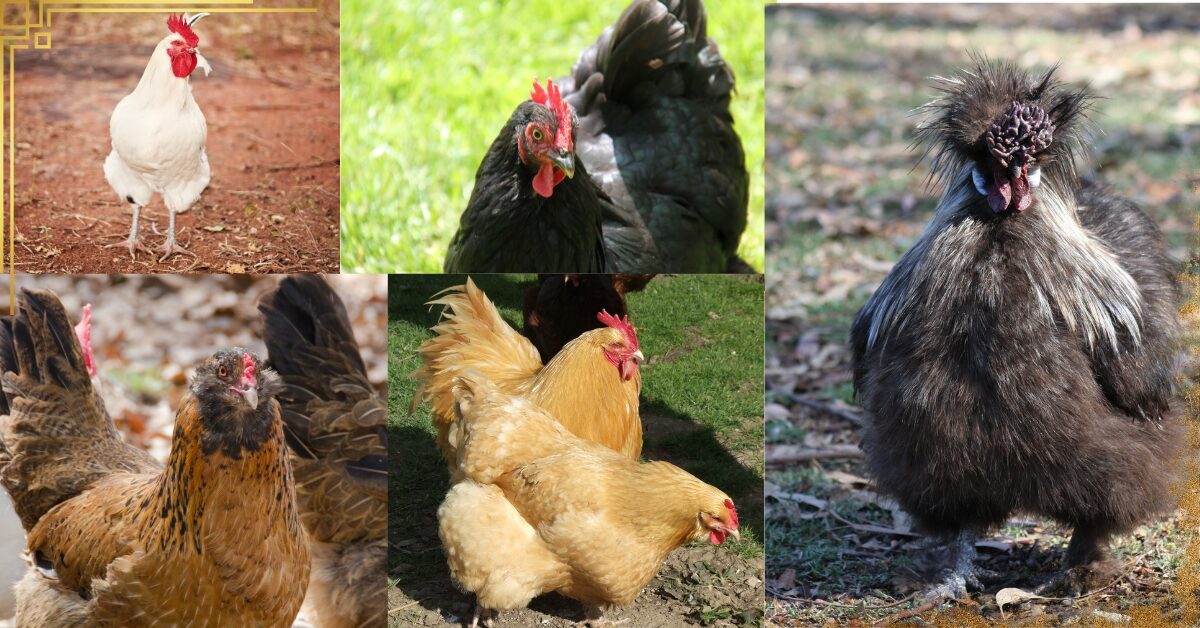It has always been a dream of yours, raising chickens for eggs. Imagine this: Your backyard is filled with the delightful sound of clucking, and you collect a basket of warm country yellow eggs. The dream is not far from becoming a reality! Chicken keeping is not only an enjoyable hobby, but it also allows you to have direct access to fresh food and be in touch with nature.
But wait! Are there reasons for breeding poultry? It is more than just raising chickens for eggs – it is caring for live creatures. But the returns are invaluable. Think about how proud you will be when collecting your own eggs, knowing where they have come from and what the hens have eaten off. Think about how excited your children would be as they learn about animal care and responsibility.
So now, are you ready for this egg-citing ride? Let’s dive into the exciting world of learning the enjoyable process of raising chickens for eggs. It matters not If you are an urban garden lover or living on a rural homestead or in the countryside. your space can accommodate these animals.
5 Essential Steps For Raising Chickens For Eggs:-
Before you welcome your first chicks or hens, there’s some groundwork to lay (pun intended!). Firstly, try to check your local zoning rules. Some areas may limit chicken numbers or require permits. Also, consider your neighbours – although most people are happy about backyard birds, it doesn’t hurt to let them know and maybe even share some eggs!
Think about space next. Of course, chickens do not need an estate; however, they must have a safe and comfortable coop and an outdoor run where they can move around freely while looking for food. Each bird requires 2-3 sq ft inside and 8-10 sq ft outside in order to be stabled properly.
Thus, if you plan on raising chickens for eggs, for example, four birds, the smallest size of the coop would easily exceed eight feet square. while its area would have to span thirty-two square feet approximately in total for running activities on the lawn.
When it comes to costs, there is a start-up capital involved in raising chickens. You will need to construct or acquire a coop, buy feeders as well as waterers, and stock up on feed. On the bright side, though, once you are set up, the costs of maintaining and raising chickens for eggs become relatively low.
A normal flock of four hens eats about 3 pounds of feed a week, which usually costs between $5 and $10 depending on where you live and what type of feed you choose.
Choosing the Right Chickens for Egg Production:

Selecting an appropriate breed is vital towards ensuring that your flock is happy as well as productive. Do you like hens who lay beautiful blue eggs or would prefer having those known for being friendly? Is your space restricted or do you have enough backyard?
Here’s a quick look at some popular breeds of chicken for backyards:
1- Rhode Island Reds:
These tough birds are famous for their brownish-red plumage and high rate of laying eggs for better choice among beginners.
2-Leghorns:
These lively and talkative females are egg producing machines giving out many white eggs. They may not be so cuddly but they will ensure your egg basket never goes empty!
3-Australorps:
Popular with families due to its shiny black feathers and calm disposition.They produce quite good numbers of light brown eggs while being very peaceful themselves.
4-Orpingtons:
Fluffy and gentle giants available in different colors characterized by their kind nature.While they do not lay the most eggs, they give very large brown ones and serve as good pets.
5-Ameraucanas/Easter Eggers:
These breeds lay blue or green eggs, thus bringing some color into the basket. They are a bit more active than some others but are generally quite friendly and inquisitive.
6-Bantams:
For those with limited space, bantams are simply miniature versions of standard chickens. Their eggs are smaller yet their requirements for space and feed are lower.
Selecting the best and most suitable breed for high egg production might take some time and further research.
Building A Chicken Coop As a Refuge for Happy Hens:

Looking after your chickens is important for their welfare and egg production. The coop design should protect them from predators. it should also ensure they are not exposed to harsh weather conditions. Along with offering a resting place for hens to sit on eggs.
Here are some of the things to look out for before you build or buy a chicken coop for raising chickens for fresh eggs;
• Size: Every chicken requires about 2-3 sq. ft. within the coop. Overcrowding causes stress, pecking, and lower egg production.
• Ventilation: Proper air circulation ensures that the house is not damp, preventing respiratory problems. Install windows or vents that can be opened and closed as needed.
• Nesting Boxes: Provide one nest box per 3-4 hens; fill with soft material such as straw or wood shavings.
• Roosting Bars: Chickens naturally sleep perched on raised objects. Position roosting bars at least two feet above the ground, allowing 10 – 12 inches of space for each bird.
• Predator Protection: To keep away predators, make sure that the coop is strong and secure by putting hardware cloth over window openings and ventilators. Another way is to enclose wire around all sides of the coop by burying it underground to prevent digging under fencing made using wire.
If you have handyman skills, building your own coop can be an exciting project that could bring joy in completing it personally, an achievement with lasting happiness, satisfaction, and pride. There are many DIY plans online and books to choose from if you want inspiration on raising chickens for eggs. If not, numerous prefabricated coops are available in different sizes and styles depending on your needs and budgetary limits.
To avoid flooding, select a level spot with good drainage when placing your coop. The shelter should be situated to receive more sun in the morning and provide shade from afternoon heat during the hot season. while in winter, it provides warm spaces.
Your Flock’s Food For High Egg Production:

Just like people, chickens need a balanced diet for good health and productive laying. Their nutritional requirements change as they grow older, and feed plays a major role in the formation of strong eggshells, yolks that are deep yellow or orange, and the best overall wellness.
The Foundation:
• Layer Feed: A good quality layer feed is the basic element of a hen’s diet. Such feeds have been designed especially with all these nutrients such as protein, calcium, vitamins, and minerals required by hens to support them when they are producing eggs. When purchasing, look for feeds labeled “layers” or ” laying hens, ” not those made for chicks or broilers (meat birds).
• How much food should be given?: About ¼ – 1/3 pound of feed per chicken daily is fair enough. This may change depending on breed, age and activity level of your birds. Watch how much they eat and adjust accordingly.
• Leafy greens: lettuce, kale, spinach, Swiss chard (spinach should be taken with care since it can interfere with calcium absorption if excessive amounts are fed)
• Vegetables: carrots, broccoli, cucumbers, squash
• Fruits: apples, berries, melons (in moderation since they contain high sugar contents)
• Grains: cooked rice, oatmeal cracked corn
• Mealworms or other insects that are high in protein; this is what chickens love!
(side note:Don’t give your hens processed foods like sugary snacks or anything that has turned sour or moldy. These foods can cause health problems and also decrease egg production.)
• Water and Grit: Ensure that there is always fresh water for your flock. You might be surprised at how much they drink, especially when it is hot! Additionally, provide the birds with grit as this aids in grinding food in their gizzards. You can buy grit from feed stores or use crushed oyster shells to supplement calcium
• Organic vs. Conventional Feed
If you are concerned about the ecological impact of your diet, organic chicken feed may be an option that you consider while raising chickens for eggs. Organic feed is devoid of artificial pesticides and fertilizers and often has higher-quality ingredients inside it. On the other hand, it tends to cost more than conventional feeds.
However, the ultimate decision lies with you; hence, ensure you do some research and pick one of a kind. You can also read more about chicken feed from here.
Everyday Chicken Care: Nurturing And Raising Chickens For Eggs:
Now that our chickens have had their fill, let’s discuss their daily care routine. It’s easier than you think; just make sure to do it consistently to keep a healthy and happy flock.
The Daily Checklist:
1.Morning Chores:
o Check if water levels are fine or not.
o Open new bags of grain by filling up all feeders.
o Watch out for any signs of illness or injury among your chickens.
2.Egg Collection:
o Take every egg laid inside nesting boxes at least once per day (preferably in morning).
o Don’t break eggs while picking them up gently from nest boxes.
o Put eggs into cool dry storage area (no need for fridge unless planning on sale).
3.Evening Chores:
o Close coop up tight so predators cannot get to chickens during nighttime hours.
o Make sure each bird is inside before shutting everything off for the night.
4-Cleaning and Maintenance
Regular cleaning is necessary for preventing infection and keeping hens comfortable. Aim to thoroughly clean the coop weekly, taking out old bedding and scrubbing feeders and waterers before replenishing with fresh ones. In addition, a layer of diatomaceous earth can be added to the coop for pest control purposes.
5-Health Checks
Chickens are generally tough animals, but they can sometimes get sick. Know how they normally behave so you can identify any changes that may suggest sickness. Some of the symptoms that you should look out for include:
• Lethargy • Loss of appetite • Droopy wings • Coughing or sneezing • Loose stool (diarrhea) • Pale wattles or combs
If you notice any of these signs, isolate the affected chicken and talk to a vet if necessary.
Predator Protection

While raising chickens for eggs, it’s important to protect them from predators. The usual suspects are raccoons, foxes, hawks, owls, and even dogs and cats found in your neighborhood. The guidelines below will help keep your flock safe from harm:
• Secure the coop: Ensure the latches are strong and windows and vents have a cloth of hardware.
• Bury fencing: Go beyond wire fencing at least 12 inches into the ground to discourage digging.
• Lock up at night: Predators tend to be most active at night, so always secure your birds in the coop when darkness falls.
• Consider a guard animal: Dogs, geese, or even llamas could provide some protection against predators.
Egg-cellent Results:
Gathering, Preserving, and Relishing the Bounty of Your Farm-Grown Food
At last! The time has come to collect those lovely, colored eggs! Harvesting eggs is easy, though some tips may help obtain very fresh and clean ones.
• Gather Eggs Daily: Chickens normally lay one egg a day, so you should collect them early every morning. This keeps them from getting dirty or broken in nests.
• Clean Hands and Containers: Wash your hands before gathering eggs, and use a dirt-free basket or tray. Avoid using polythene bags, as they hold dampness and encourage bacteria growth.
• Store Properly: You must keep your eggs in dry, cool places. A refrigerator is ideal for long-term storage. Fresh eggs can keep well for several weeks if kept properly.
And now the best part – enjoying homegrown eggs! Fresh eggs taste better than store-bought ones because they are richer and creamier. They’re wonderful for scrambling, frying, poaching, or baking. Let your creativity flow within the kitchen as you try out different recipes that highlight how delicious your omelet is
FAQs:
Q: Do I need a rooster in order for hens to lay eggs?
A: No! Hens will lay eggs whether there’s the presence of a rooster or not in their midst; only if one desires fertilized eggs for hatching chicks would this be necessary.
Q: What is the needed chicken’s space?
A: Each hen requires approximately two to three square feet inside the coop and eight to ten square feet of roaming space in an open-air run.
Q: what should I feed my chickens?
a: Provide a balanced layer feed, supplemented with treats such as vegetables, fruits and grains. Always ensure access to fresh water and grit.
Q: How do I protect my chickens from predators?
A: Make sure your coop is made of strong materials, bury fencing, and lock it at night. You may want to consider using a motion-activated light or guard animal for extra protection.
Conclusion:-
Raising chickens for eggs is a journey full of education, humour or fun and tasty rewards. Though it does require some work and dedication. The benefits outweigh the costs. The delight of gathering fresh eggs each morning, the satisfaction in growing one’s own food and being in touch with nature are some among many reasons why people have come to love backyard chickens.
So what are you waiting for? Gather your supplies, build your coop, and get ready to welcome your new feathered friends. With just a little bit preparation and lot of love, you’ll be making omeletes out of golden eggs before you know it!



